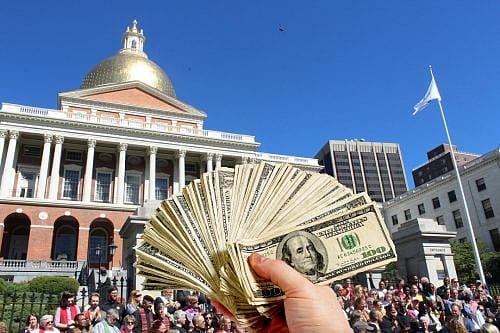Ranked-Choice Voting Supporters Planning To Try Ballot Question in 2020
Supporters of ranked-choice voting plan to try to get a referendum on the 2020 Massachusetts general election ballot.
"While we will continue advocating for the successful passage of two ranked choice voting bills before the Legislature this session, we are finalizing language to submit to the Attorney General as the first step toward getting RCV before the voters on the 2020 ballot," said Emily Fitzmaurice, a spokesman for Voter Choice Massachusetts, in a statement to State House News Service.

